Amanda Eggert | Montana Free Press
Montana has a long history of supplying this country — and others — with heaps of raw material to generate and transmit electricity. Those natural resources include the Powder River Basin’s coal seams, the Bakken Formation’s oil and gas reservoirs, and Butte’s vast copper deposits. On the one hand, the Treasure State’s extraction of heavy metals and hydrocarbons has resulted in a grim environmental legacy, which includes the Berkeley Pit, a textbook remediation failure so toxic that in 2016 it killed thousands of migrating snow geese in a matter of days. On the other hand, that legacy has also helped engender some of the strongest constitutional protections for the environment in the country.
In 1972, 100 delegates rewrote Montana’s constitution to include the preservation of a “clean and healthful environment” for “present and future generations.” The delegates, everyday people, not politicians, also directed the state’s citizen legislature to adopt laws to protect the state’s “environmental life support system” and guard against the “unreasonable depletion and degradation” of its natural resources.
When 150 lawmakers converged on the Capitol this January for the Legislature’s biennial session, the uneasy interplay between all of that subsurface wealth and Montana’s constitutional directives came into focus as the Republican-controlled Legislature passed industry-friendly measures intended to keep coal — and other fossil fuels — king in the Treasure State.
Additionally, two measures passed by the Legislature’s first dual-house supermajority in a century have profound implications for Held v. Montana, the first youth climate lawsuit in the country to go to trial. On June 12, 16 Montana youth and a collection of expert witnesses will argue that the state’s approach to energy permitting has deprived the youth of their right to “a clean and healthful environment” and other Constitutionally-enshrined rights. They’ll also argue that, by being so permissive with the extraction and combustion of fossil fuels, Montana agencies have violated the public trust doctrine, which holds that governments must manage shared natural resources for the benefit of present and future generations.
One of the 2023 bills referenced in recent Held filings explicitly bars state agencies from including the analysis of greenhouse gas emissions or climate-related impacts in environmental reviews. Its passage made national news in May. The other bill repeals the entirety of the Montana Energy Policy, a fossil-fuel-heavy energy vision for Montana that forms a central component of the plaintiffs’ claims.
During the 90-day session, the Legislature also passed bills that loosen coal-mining regulations, prohibit local governments from adopting regulations to steer their communities toward cleaner energy sources, and make it harder and more expensive for environmental groups to delay or stop projects with litigation.
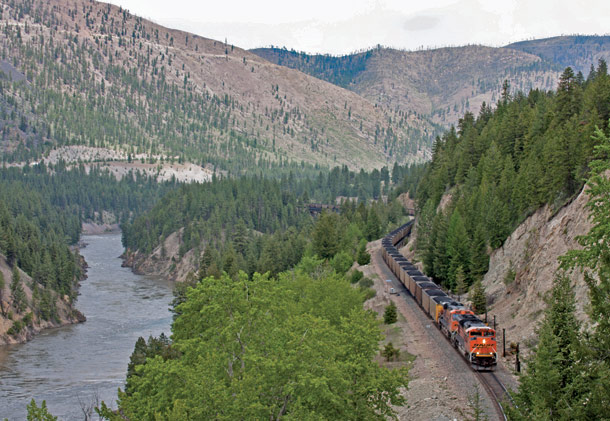
HOW THE MONTANA ENVIRONMENTAL POLICY ACT AND THE MONTANA ENERGY POLICY FACTOR INTO LITIGATION
Relatively early in the 2023 session, lawmakers made a party-line vote to repeal the Montana Energy Policy, a 30-year-old piece of (heavily amended) law plaintiffs referenced in filings for its pro-fossil fuel language.
The Montana Energy Policy is a somewhat clunky, even contradictory, piece of code. It established a broad vision for energy in the state and includes more than 30 sub-clauses. Parts of it call for the state to increase oil and gas exploration and development in order to create high-paying jobs and reduce reliance on foreign oil — amendments added to the policy in 2011; other parts direct policymakers to use new and innovative technologies such as batteries and green hydrogen to complement wind and other renewable energy sources. The policy also calls for distributed generation and a focus on energy conservation and efficiency, which renewable energy wonks have championed for years.
For his part, House Bill 170 sponsor, Rep. Steve Gunderson, R-Libby, argued that the policy amounts to an “advisory-only” piece of code that “has no teeth.” The real nuts-and-bolts of energy policy, he said, involves more specific regulations implicating tax codes, permitting processes and land use. He also said Gov. Greg Gianforte should have an opportunity to start fresh with his own energy priorities.

The energy policy is “nothing but a political football,” according to Montana Petroleum Association Executive Director and former state lawmaker Alan Olson. “I guess I’d refer to it as a letter to Santa Claus. [Its repeal] will not have any effect on energy policy moving forward.”
Although lawmakers made few, if any, references to the climate trial when debating HB 170, it appeared in lawsuit filings shortly after Gianforte signed it into law. Montana Attorney General Austin Knudsen, a Republican who’s been vocal in his support of the Keystone XL pipeline and free with his criticism of President Joe Biden’s oil and gas leasing approach, moved to dismiss parts of the suit centering the energy policy. He argued that the removal of that piece of law had invalidated plaintiffs’ claims.
Despite arguments made by the plaintiffs’ attorneys that the statutory appeal of the state’s energy policy did not change Montana’s de facto energy-permitting approach, Lewis and Clark County District Court Judge Kathy Seeley,agreed to dismiss the claims based on the energy policy. The order she issued May 23 affirmed the lawsuit will proceed, with a narrowed scope based on the remaining claims regarding the environmental review process.
Gunderson, a former mining contractor who chairs the House Natural Resources Committee, also garnered attention when he submitted a request for a bill titled “Revise Montana constitutional language regarding clean and healthful environment” — the protections that are a foundational piece of the youth plaintiffs’ claims.
In late December, Gunderson put the draft request on hold and left it there, but not before it made national waves. Gunderson’s proposal was never officially introduced or debated— GOP leadership said the party would rally behind about a dozen constitutional amendments they had identified as having the best chance of passing.
A prominent GOP-backed measure that did make it across the finish line involves the Montana Environmental Policy Act, or MEPA, which directs the state to take a comprehensive look at the environmental impacts of large projects and highlight potentially impacted historical and cultural sites. In the last several years, groups such as the Sierra Club, Montana Environmental Information Center and the Park County Environmental Council have made MEPA claims to challenge a Paradise Valley gold mine, NorthWestern Energy’s Yellowstone County gas plant, and an expansion of the Rosebud coal mine, the sole supplier of the Colstrip coal-fired power plant.
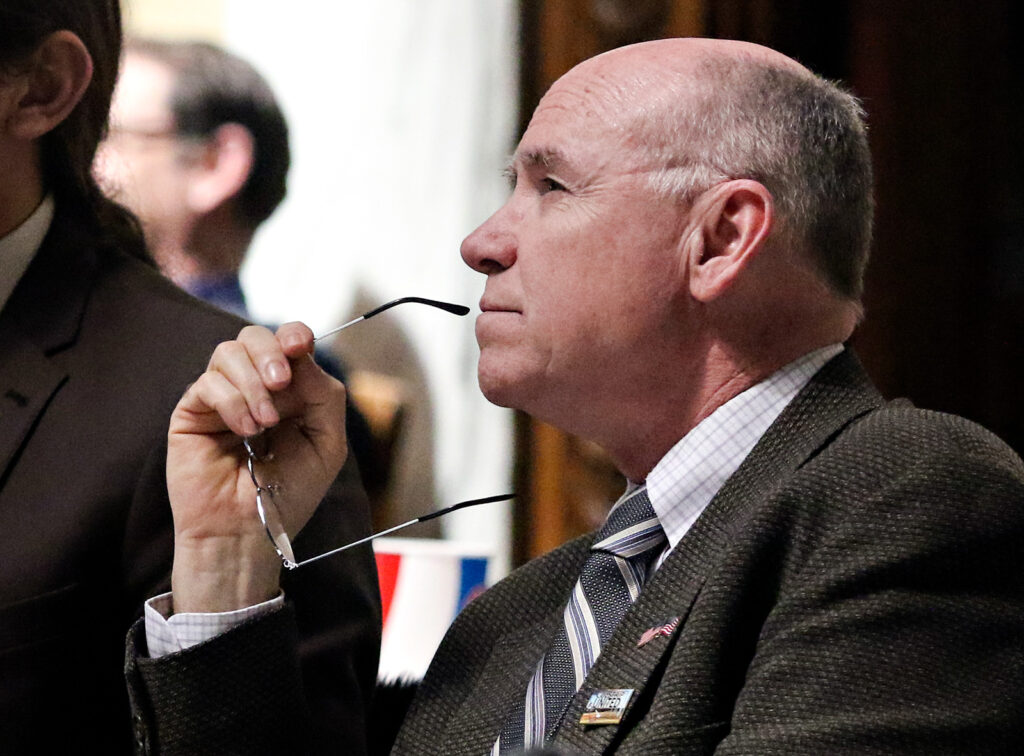
Senate Bill 557 sponsored by Sen. Mark Noland, R-Bigfork, puts stricter parameters around nonprofit groups’ ability to sue under MEPA by requiring groups challenging state permitting actions to post a bond before filing a lawsuit and to seek a preliminary injunction, a tough-to-reach legal standard that would immediately halt a project.
SB 557 underscores that MEPA is supposed to provide a procedural rather than regulatory framework for permitting decisions, Noland told his colleagues. It’s intended to prevent “good people, good companies” from losing revenue due to “frivolous lawsuits,” he said, adding that it will ensure that individuals or groups challenging a state-issued permit establish “legitimacy” first.
Opponents of that measure, including a grassroots group that used MEPA to oppose a Paradise Valley gold mine, questioned whose interests the bill furthers and argued that it would prevent local organizations from effectively representing the concerns of individuals and businesses living with a large project’s impacts.
“Most Montanans are not billionaires — if this bill had been in place, our community could not have afforded to go to court,” Michelle Uberuaga with Park County Environmental Council told the House Natural Resources Committee.
SB 557 was signed into law May 19. Both the sponsor and some of its opponents said legal challenges to it are likely.
CLIMATE IMPACT ANALYSIS AND LOCAL CONTROL
House Bill 971, which directs state agencies to exclude greenhouse gas emissions and climate impacts in environmental reviews, was the most commented-upon environmental proposal of the 2023 session, and is at the heart of the remaining Held claims. Despite its late introduction, it garnered more than 1,000 public comments, 95% of which were in opposition.
Bill sponsor Josh Kassmier, R-Fort Benton, said HB 971 will put a legislative check on judicial overreach — more specifically, he criticized an April ruling by Yellowstone County District Court Judge Michael Moses that revoked the permit for a gas plant under construction on the banks of the Yellowstone River.
In that ruling, Moses directed the state to analyze greenhouse gas and lighting-related impacts for the 175-megawatt gas plant, which is located in an agricultural area west of Billings. The plant merits greater scrutiny, Moses wrote, particularly for “most Montanans who clearly understand their fundamental constitutional right to a clean and healthful environment.” He also wrote that the Montana Department of Environmental Quality “misinterprets” a statute directing the state not to consider environmental impacts beyond Montana’s borders, a reference to a MEPA amendment legislators passed in 2011 with a prohibition on greenhouse gas reviews in mind.
Although the monopoly utility building the gas plant pledged to appeal the ruling shortly after Moses issued it, Republican lawmakers voted to suspend their rules late in the session to introduce legislation aimed specifically at Moses’ decision. Enter HB 971, which bars state agencies like DEQ from evaluating greenhouse gas emissions and “corresponding impacts to the climate” both within and beyond Montana’s borders.

“If we’re going to start letting judges make policy decisions from the bench, as a state, we need to make our policy decisions — put them into law,” Kassmier told his colleagues during an April bill hearing.
Just one of the Legislature’s 102 Republicans voted against the bill and Republican Gov. Gianforte signed it into law on May 10, drawing a national spotlight on Montana’s climate policies. In a May 16 piece, Inside Climate News described HB 971 as an attempt to “squelch modern climate science” that “could set a new precedent for anti-climate policy.”
Retired Montana Supreme Court Justice Jim Nelson didn’t mince words in his assessment of the Legislature’s environmental track record with bills like HB 971, which he described as an “idiotic” bill. Like other bills passed this session, it will likely result in the state racking up taxpayer-funded legal fees to “defend what’s really indefensible,” he said.
“Maybe the Legislature lives in an alternate universe I’m not familiar with, but explain to me how that sort of legislation fulfills the Legislature’s statutory obligations to adopt statutes to maintain and improve the environment,” Nelson said. “It boggles the mind. It absolutely boggles the mind.”
Kassmier and a colleague in the Montana Senate, Jason Small, R-Busby, also went to bat for fossil fuel interests this session by successfully introducing legislation restricting local governments’ ability to require climate-friendly building codes and prohibit fossil fuel use.
House Bill 241, for example, prohibits a city or county from requiring solar panels, solar panel-ready wiring or electric vehicle charger-ready wiring in new construction. Kassmier said such regulations could make the already spendy prospect of building a new home even more expensive and that homeowners shouldn’t be burdened with paying for electrical infrastructure they may not need or want.
Opponents of the measure, including representatives from the cities of Bozeman and Missoula, countered that it’s a local control issue — HB 241 subverts citizens’ ability to influence government decisions at the most immediate, accessible level. They also made economic appeals, arguing that green energy and access to EV chargers attract economy-boosting employers and that it’s significantly more expensive to retrofit buildings to accommodate EV chargers and solar panels than to include compatible wiring in new construction.
Shortly after gas stoves caused a stir in national political debate, Montana legislators also passed Senate Bill 228 and Senate Bill 208. They prevent a local government from prohibiting the use, transport, connection or reconnection of petroleum-based fuel sources. Proponents of those measures, including regulated utility NorthWestern Energy and the Montana Petroleum Association, said that they preserve Montanans’ access to a diversity of energy sources to fuel cooking stoves, furnaces, lawnmowers, chainsaws and more.
Small said the bill will help Montana stay ahead of an “ill-advised” trend taking root in places such as Seattle, Washington, and Eugene, Oregon. Two years ago, Seattle banned natural gas in multi-family, multi-story residential construction. This February, Eugene voted to prohibit “fossil fuel infrastructure” in new low-rise residential buildings. There are currently no such regulations on the books in Montana.
Gov. Gianforte, who’s acknowledged human-caused climate change and has said he subscribes to an “all of the above” energy policy, signed them into law in May.
COAL-MINING REFORMS
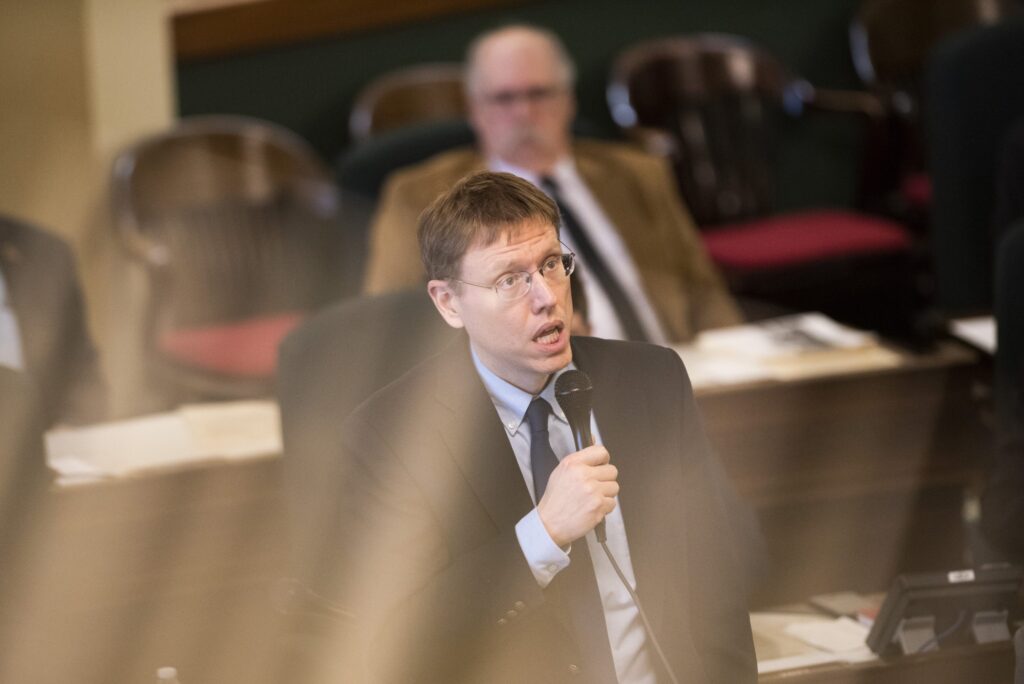
In mid-April lawmakers passed Senate Bill 392, a proposal by Great Falls attorney and Sen. Majority Leader Steve Fitzpatrick, which changes how litigants in a coal-mining proceeding are classified by state courts. It would prohibit a judge from considering the “identity” of a party, which opponents describe as an attempt to turn coal-related litigation into a prohibitively expensive prospect, potentially forcing individuals and nonprofits to cover millions of dollars of expert costs incurred by large corporations and government agencies.
Although Gianforte signed SB 392 into law in early May, MEIC Deputy Director Derf Johnson said it could still run into issues with federal law. The Office of Surface Mining Reclamation and Enforcement don’t allow such “loser-pays” regulations, Johnson said, because “they recognize it would dissuade enforcement of the law.”
On the House side, Rep. Rhonda Knudsen, R-Culbertson, sponsored House Bill 576, which deals with water quality regulations and “material damage” classifications. HB 576 strikes a piece of state law declaring that “violation of a water quality standard, whether or not an existing water use is affected,” constitutes material damages, which are expressly prohibited in state coal-mining regulations. In place of the old material damage language, HB 576 puts parameters around the kinds of impacts that constitute such damages, namely “long-term or permanent exceedance of a water quality standard outside of a permit area.”
Landowners living near large coal mines say changing these regulations could threaten their access to high-quality water, which many use for both domestic and agricultural purposes. Steve Charter, a Shepherd resident who ranches near a coal mine operated by Signal Peak, argued that coal companies and DEQ have little understanding of what constitutes long-term damage to ranching operations, but he has intimate knowledge of the “serious damage” coal mining does to both water and land.
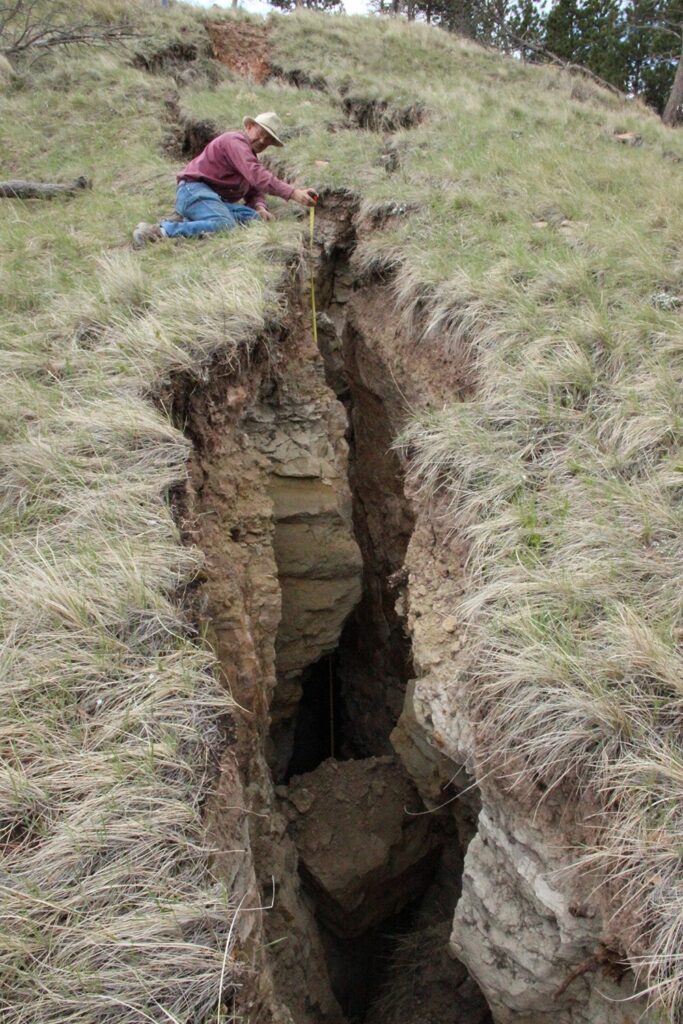
Another industry-backed, regulation-loosening proposal that passed largely along party lines was sponsored by Gary Parry, a Republican representative from Colstrip who formerly worked at the Rosebud Coal Mine. House Bill 656 reclassifies coal mine expansions smaller than 320 acres as “minor amendments,” which are subject to limited DEQ review and don’t require public notice or comment.
“This is a simple bill that provides more clarity without changing any environmental protections already in place,” Parry told lawmakers on Feb. 22, before turning the microphone over to Darryl James, the lobbyist for his former employer.
James said the bill will help Westmoreland, which operates the Rosebud Mine, one of the largest strip mines in the United States, get to accessible, as-yet unmined coal, and to do that more efficiently.
Another supporter of HB 656 was NorthWestern, which has a partial and soon-to-increase ownership stake in the Colstrip plant supplied by the Rosebud Mine. Lobbyist Christopher Puyear said keeping the Colstrip plant operational into “2030 and beyond” requires ready access to available coal reserves. The Colstrip plant is the largest single source of carbon dioxide emissions in the state.
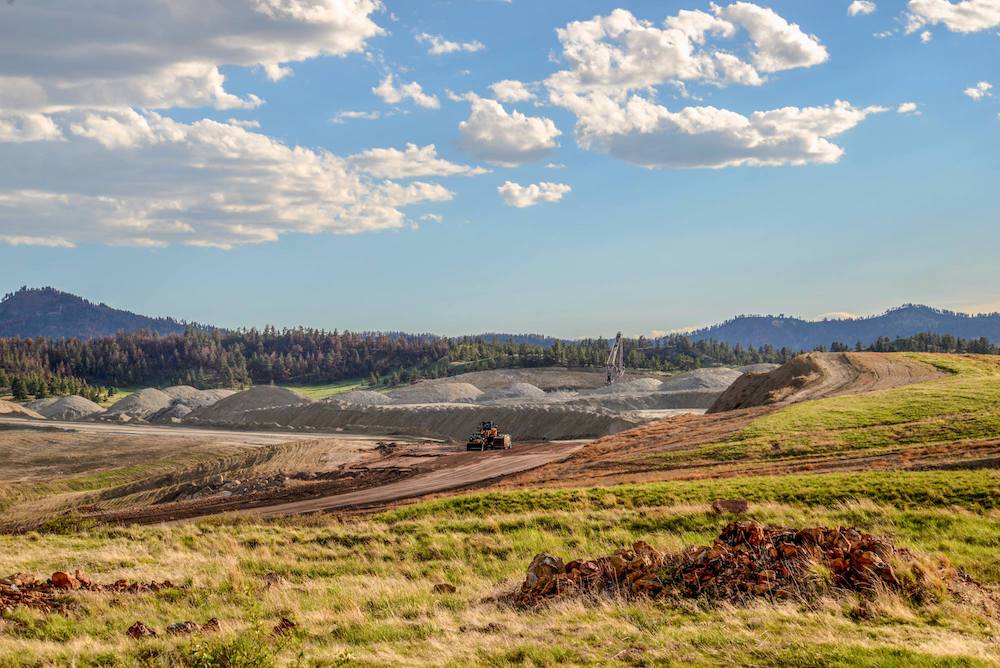
Charter also argued against this bill, asserting that what might constitute a “minor impact” to a coal company could be a major one to him, resulting in subsidences — cracks up to 40 feet wide and 25 deep that open in the earth due to mining activities. It can take years for them to complete the remediation, Charter said, adding that he doesn’t receive reimbursement for that damage.
Gianforte signed HB 576 and HB 656 into law the third week of May. On June 1, a coalition of environmental groups filed a lawsuit in federal court to block the state’s enforcement of HB 576 and SB 392, arguing that they don’t comply with federal mining and water-quality laws.
Of all the energy- and environment-related bills Gianforte has signed in recent weeks, however, the one prohibiting the state from analyzing greenhouse gas emissions and climate impacts will directly play into Held proceedings.
In her May 23 order, Seeley wrote extensively about the proposal and how it squares with the environmental protections in the Montana Constitution. The court may be unable to force the state to conduct greenhouse gas analyses, she wrote, “but it can strike down a statute prohibiting it.”
The conversation around energy permitting in Montana has thrown into sharp relief the tug-of-war between the legislative and judicial branches of government.
Asked to take a 30,000-foot view of lawmakers’ energy and environmental priorities, Anne Hedges, who has lobbied state lawmakers on behalf of MEIC for 30 years, said lawmakers have demonstrated little allegiance to Montana’s Constitution and weakened the foundations of our democracy. Honoring America’s co-equal branches of government and the checks and balances that support it has not been a priority for the Legislature, she said.
“They don’t seem to understand that, or they don’t care,” said Hedges, who is expected to testify during the trial. “I don’t know which one it is, but both are dangerous.”
This article is part of a series on the youth-led constitutional climate change lawsuit Held v. Montana, which goes to trial in Helena on June 12. The rest of the series can be read at mtclimatecase.flatheadbeacon.com. This project is produced by the Flathead Beacon newsroom, in collaboration with the Montana Free Press, and is supported by the MIT Environmental Solutions Initiative Journalism Fellowship.